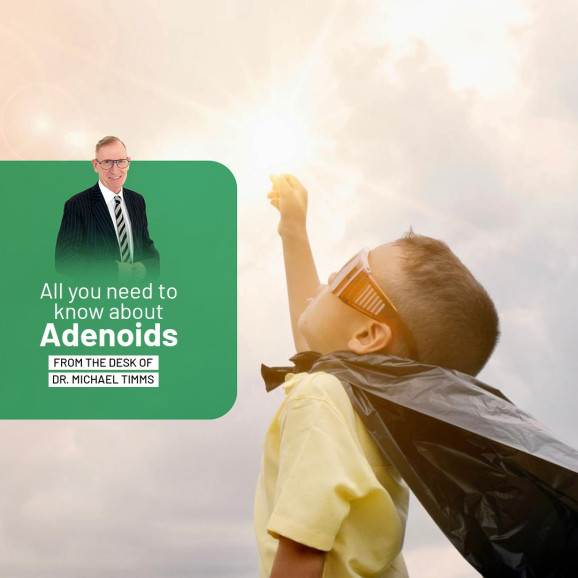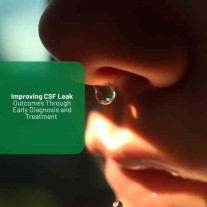Everything you need to know about Adenoids:Insights from the Best ENT Specialist in Dubai
Contact Us
What Are Adenoids?
Adenoids are lymph glands at the back of the nose in the upper part of the throat. They are a minor part of the immune system that helps defend the body from infections that enter through the mouth and nose. However, these glands may swell when often overgrown and stay enlarged even not infected.
Enlarged adenoids can make it difficult for children to breathe properly. Adenoids usually begin to shrink around the age of 9 or 10. Adenoid removal is most common in children; however, adults may require an adenoidectomy if they continue to experience adenoid problems or there is a risk of a tumor on the adenoids.
What are the symptoms of enlarged adenoids?
Common symptoms of having enlarged adenoids include:
- Difficulty breathing through the nose: Sometimes children have adenoids so big that they have a blocked nose, so that they have to breathe through their mouths.
- Snoring or sleep apnea: They snore at night. Some children even stop breathing for a few seconds while they are asleep.
- Breathing loudly or breathing through the mouth frequently and Recurring nose or ear infections: The adenoids can also cause ear problems by blocking the tubes which joins your nose to your ears from working properly. Removing the adenoid at the same time as putting grommets in the ears seems to help stop the glue ear coming back. Removing the adenoids may also make colds that block the nose less of a problem for your child.
If your child is having a problem with their tonsils, the doctor will most likely recommend having a tonsil reduction at the same time as your adenoids are removed.
What If Adenoids are Not removed?
Adenoids get smaller as you grow older, so you may find that nose and ear problems get better after a few years, often around 9 years.
For a lucky few children, usually those with strong allergy, using a steroid nasal spray may help reduce congestion in the nose and adenoids, and may be helpful to try before deciding on surgery. Antibiotics only produce temporary, if any relief from infected nasal discharge.
Can I Shrink Adenoids through natural remedy?
No. Shrinking adenoids naturally is not typically possible, as adenoids become enlarged due to infection or inflammation. In some cases, such as when adenoids become enlarged due to infection, they may shrink naturally as the infection resolves. If adenoids are persistently enlarged and causing symptoms, medical intervention may be necessary. At Tarabichi ENT, we specialize in providing advanced treatments for adenoid issues, led by some of the best ENT specialist in Dubai. Whether it’s a consultation, diagnosis, or surgery, our team ensures the highest standard of care
What Does an Adenoidectomy involve?
Arrange for a week off school. Let us know if your child has a sore throat or a cold in the week before their operation –sometimes it may be worth delaying surgery for a few weeks.
Your child will be asleep for the operation. We will take out the adenoids through the mouth.
Adenoid surgery is done as a day case, so that the patient can go home on the same day as the operation. We will let them go home when they are eating and drinking and feel well enough.
Most children need about a week off nursery or school. This depends on the individual child. They can indulge in all usual activities, including swimming. Keeping away from crowds and smoky places may be advisable. Try and stay away from people with coughs and colds.
Possible Complications
Adenoid surgery is very safe, but every operation has small risks. The most serious problem is bleeding, which may need a second operation to stop it. However, bleeding after adenoidectomy is very rare. It is very important to let us know well before the operation if anyone in the family has a bleeding problem.
During the operation, there is a very small chance that we may chip or knock out a tooth, especially if it is loose, capped or crowned. Please let us know if your child has any teeth like this.
What to expect after operation
Most children recover very quickly.
A small number of children find that their voice sounds different after the surgery. It may sound like they are talking through their nose a little. This usually settles by itself within a few weeks. Most children speak more clearly after correcting nasal obstruction.
The child’s nose may seem blocked up after the surgery, but it will clear by itself in a week or so.
Your child may have sore ears. This is normal. It happens because your throat and ears have the same nerves. It does not mean your child has an ear infection.
Doctors would mostly prescribe painkillers as needed for the first few days. Do not use more than is prescribed.
Most children develop a bad breath and mild fever for a few days. This is normal.
Can Adenoids Regrow?
Adenoids, like tonsils, are a part of the body's immune system and will not regrow if they are completely removed. However, it's important to note that complete removal of adenoids (adenoidectomy) is typically done to resolve issues related to enlarged or infected adenoids that are causing problems such as obstructed breathing, chronic sinus infections, or ear infections.
If adenoids are only partially removed or if some tissue is left behind, there is a possibility that they can regrow or become enlarged again over time. This occurs in 17% of cases treated with the traditional curette, but after 17 years experience of using Coblation for adenoidectomy, this does not seem to occur.
It's important for individuals who have undergone adenoidectomy to follow up with their healthcare provider if they experience symptoms that may indicate adenoid regrowth, such as persistent nasal congestion, difficulty breathing through the nose, or recurrent sinus or ear infections.
AAt Tarabichi ENT, we have Dr. Michael Timms, the Father of Coblation Surgery in ENT, and Dr. Muaaz Tarabichi, a renowned ENT surgeon known for his expertise in advanced ENT procedures. Both are recognized as the best ENT specialists in Dubai. With years of experience and unparalleled expertise, our team ensures that every adenoidectomy is performed with precision and care.
For Consultation, you can now request an appointment here. Call us at 04-4131000 or email callcenter@tarabichi.org
If you are looking for the Best ENT Doctor in Dubai or the Best ENT Specialist in Dubai, please reach out to us on the below details, our team comprises of only the best ent doctors in UAE and the region.




